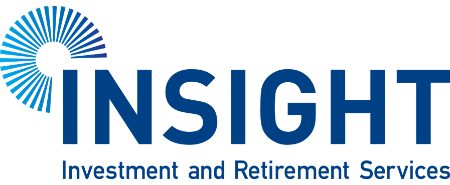Benefiting from Super as a Self Employed Business Owner
In this post we consider a number of superannuation contribution strategies that can be utilised to improve your retirement account, as a self-employed person.
Superannuation and retirement planning is rarely top of mind for business owners. After taxes, staff and expenses have been addressed, most business owners are happy to receive a wage that reflects the amount of hard work that goes into running a business.
Ignoring super contributions is unfortunate however, as super provides a tax effective way to save for retirement, as well as reduce taxes, today.
We’ll go through some of the contribution strategies available and address the benefits of doing so. (Note: Given the ever changing nature of contribution limits, we have not specified these here, but if you would like to know more, you can review the ATO website or contact us)
Small business tax concessions
Especially relevant to small business owners, the small business tax concessions can be of huge benefit to you. These apply to the sale of active assets in your business.
There are several concessions, including;
- 15 year exemption
- 50% active asset reduction
- Retirement exemption
- Rollover
We will be covering these in more detail in an upcoming guide, but if you meet any the following you may be eligible;
- You have an aggregated annual turnover of less than $2 million
- Your asset was used in a closely connected small business
- You have net assets of no more than $6 million ( excluding personal use assets including your home to the extent that it has not been used to produce income.)
For more information, you can see details on the ATO Website
Effectively, the small business tax concessions can be extremely valuable in reducing the tax you pay on active assets and increasing the value you can extract from your business.
Purchasing business premises through an SMSF
It is possible to purchase commercial premises from your own business and have these premises rented out to the business. This can be an option if you want to sell your business, but retain ownership of the commercial premises, so you can continue to receive rent throughout retirement.
This is a way to generate a (potentially) tax free income throughout retirement.
Note: This can’t be done through an ordinary super fund though, it must be done through an SMSF.
While this can be a benefcial strategy, it can be quite complicated, so it is important to understand all of the rules and ramifications around this.
Super Recontribution Strategy
When considering the tax makeups of your super balance, there are two main types; taxable and tax-free.
When you withdraw these funds and recontribute them, they can be classed as tax-free funds.
There are a few reasons for doing this, one being to reduce the amount of tax your beneficiaries will pay, should you pass away (assuming your beneficiaries are non-dependants, such as adult children).
Note: There are other reasons as well, such as increasing the age pension a couple receives, if one is older than the other.
Spousal Contributions
It’s not uncommon for one spouse to generate more income than the other. Especially if one spouse has been caring for children.
There are contribution opportunities for one spouse to contribute to the other spouses super account.
This is beneficial for two main reasons; the contributing spouse may be able to claim a tax offset from the contribution.
The receiving spouse gets an added boost to their super account.
Note: It is beneficial to consider the appropriateness of other contribution opportunities, such as the co-contribution, in light of the spousal contribution.
Pre-Tax (Concessional) Contributions
If you’re paying a lot of income tax, a concessional contribution might help you reduce your personal income tax and increase your super balance.
A pre-tax or concessional contribution is made before your personal income tax rate is applied and the money is diverted to your super fund, rather than your bank account.
You still pay tax though. But at the superannuation concessional rate, not your personal marginal tax rate. If the super tax rate is lower than your marginal tax rate, it might be worth your while.
Of course, you need to be happy to forego those funds for retirement, instead of today.
Note: There are penalties for contributing more than the allowable amount to super as a concessional contribution – make sure you don’t breach your caps.
Post-tax (non-concessional) contributions
Putting post-tax money into super is a great way to boost your account.
When we say ‘post-tax’ money, we mean money that is no longer subject to taxation. This generally means money in the bank, that has already been taxed – i.e. money from income after PAYG tax has been paid or money from asset proceeds, once Capital Gains Tax has been applied.
Another reason for making non-concessional contributions to super is to reduce the tax payable on investment earnings. Outside super, your investment earnings are added to your taxable income and are taxed at your marginal rate.
Inside super, these earnings are not added to your taxable income and are taxed at the super tax rate – which is generally lower than the middle and highest tax rates.
Note: Getting money into super in one go can be hard, it may be better to get funds in over time, rather than as a lump sum.
Reducing Tax and Increasing your Retirement Savings
Superannuation can be a beneficial structure to invest funds. Super offers many tax benefits, both in the present and future. Importantly though, contribution limits are constantly changing, so it is recommended you speak with your accountant or a financial adviser before making any contributions to super.
Contact Us
At Insight IRS we offer all prospective clients a complimentary initial meeting.
Call 1300 551 267 or Email great.advice@insight-irs.com.au
Disclaimer: Any advice provided in this document is General Advice Only. It has been prepared without taking into account your objectives, financial situation or needs. Before acting on this advice you should consider the appropriateness of the advice, having regard to your own objectives, financial situation and needs. If any products are detailed on this document, you should obtain a Product Disclosure Statement relating to the products and consider its contents before making any decisions. While all care has been taken in the preparation of this newsletter, The FinancialLink Group Pty Ltd does not warrant or represent that the information is accurate, complete or current.



